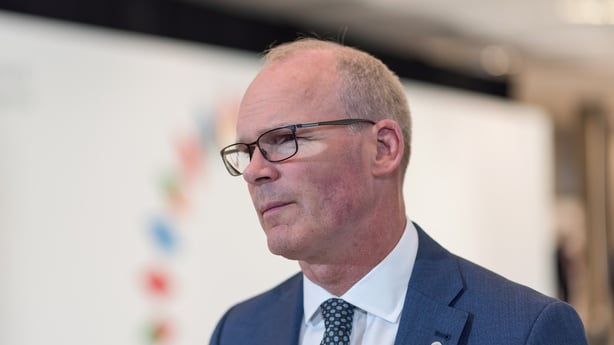EU foreign ministers have agreed to suspend a 2007 visa facilitation deal with Russia, but stopped short of a wider visa ban as requested by some member states.
European Union foreign policy chief Josep Borrell said that the ministers had agreed that relations with Moscow "cannot be business as usual" and that the agreement should be "fully suspended".
Following the two-day informal meeting in Prague, the EU High Representative for Foreign Affairs and Security Policy said that this would make it "more difficult" and "longer" for Russian nationals to get visas.
"It will significantly reduce the number of new visas issued by the EU member states," he added.
In a concession to eastern EU members who had pushed for a tougher approach, Mr Borrell said that countries bordering Russia "can take measures at a national level to restrict entry into the European Union".
We need your consent to load this rte-player contentWe use rte-player to manage extra content that can set cookies on your device and collect data about your activity. Please review their details and accept them to load the content.Manage Preferences
But he said any measures would have to conform with rules for the EU's Schengen common travel zone.
Mr Borrell also emphasised the importance of members of Russian civil society being allowed to travel to the EU.
Eastern EU states consider further action
Ukrainian Foreign Minister Dmytro Kuleba, who was also in Prague for the talks, dismissed the suspension of the visa facilitation agreement as a "half-measure".
"This is a time when the age of peace in Europe is over and so is the age of half-measures," he said.
"Half-measures with regard to Russia is exactly what led to the large-scale invasion of 24 February."

Ahead of the meeting, Minister for Foreign Affairs Simon Coveney said that - due to the Common Travel Area - Ireland would "need to speak to the UK" if any decision was made that would reduce Russian citizens' access to Ireland.
Poland and the three Baltic states of Estonia, Latvia and Lithuania had said that they were considering barring Russian travellers if the EU as a whole failed to do so.
In a joint statement the four countries had said that suspending the visa facilitation agreement was "a necessary first step".
"But we need (to) drastically limit the number of visas issued, above all tourist visas, to decrease the flow of Russian citizens into the European Union and the Schengen area," they added.
They said the move should contain exceptions "for dissidents as well as other humanitarian cases".

